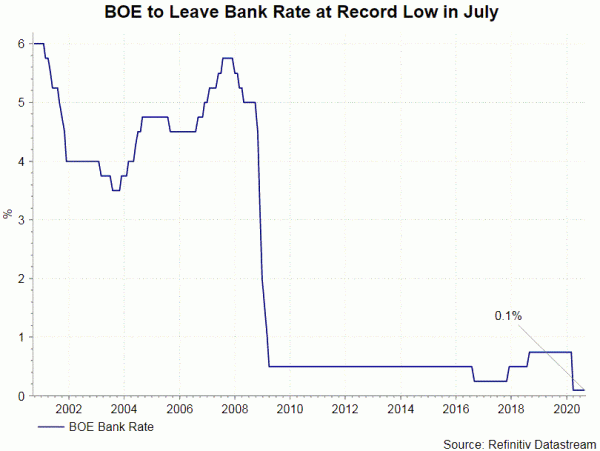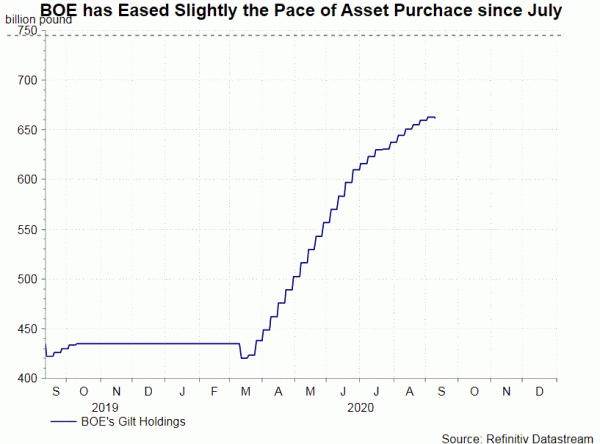Renewed uncertainty of Brexit talks, sharp selloff of sterling last week and increased speculations of further rate hike have made this week’s BOE meeting a closely-watched one. While the central bank is expected to leave the policy rate and QE unchanged at the meeting, we anticipate it to deliver a dovish message and signal further easing in as soon as November.
Released last week, UK’s GDP contracted -11.7% y/y in July, less severe than June’s -16.8% but worse than consensus of -11.3%. From a month ago, July’s growth was +6.6%, missing consensus of +6.7% and June’s +8.7%. Inflation remains weak despite recovery from May’s trough. Ahead of this week’s BOE meeting, we will get the latest inflation report. Headline CPI is expected to have sharply eased to +0.1% y/y in August, form +1% a month ago. Core inflation would have slowed to +0.1% y/y from July’s +1.8%. The job market data will also be released ahead of the meeting. The unemployment rate probably increased to 4.1% in the 3 months through July, from 3.9% in the prior month. The number of payrolls might have been further down by -120K, following a -220K contraction in July. Wage could have weakened further, contracting -1.3% after July’s -1.2% fall.
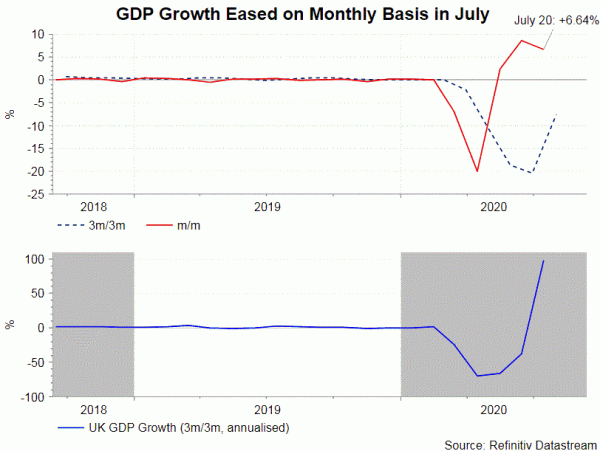
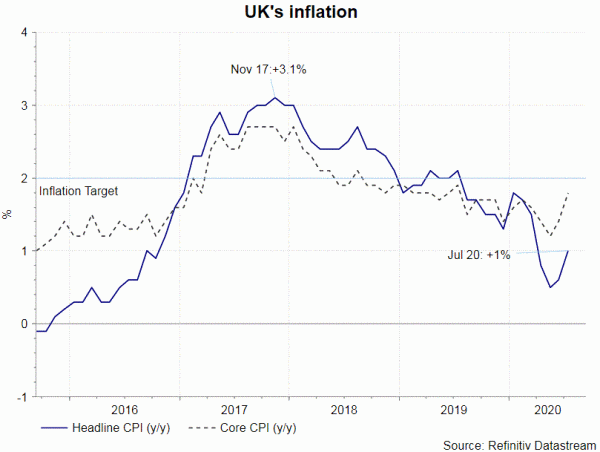
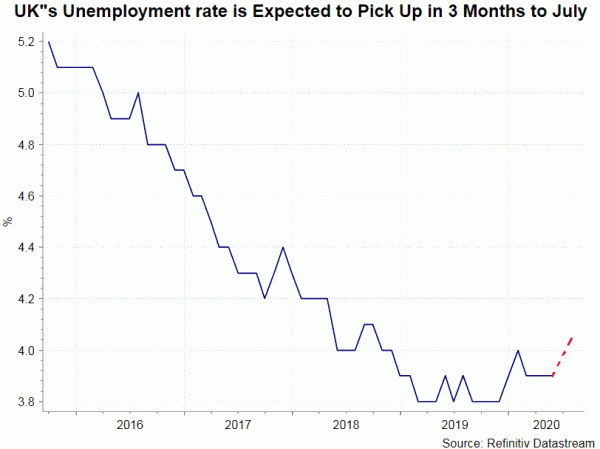
Brexit negotiations have returned to the spotlight. There will be a second reading on the internal markets bill proposed by PM Boris Johnson’s government last week. The controversial bill, which seeks to amend certain aspects of the Brexit Withdrawal Agreement signed in January, has triggered strong criticism from the EU. Speculations of a no-deal Brexit have increased to 40-45% last week and led to selloff of British pound. We do not expect BOE to make forecast about the probability of a no-deal Brexit. Yet, we believe policymakers would be concerned about the potential impacts on UK’s economy and discuss relevant monetary policy actions.
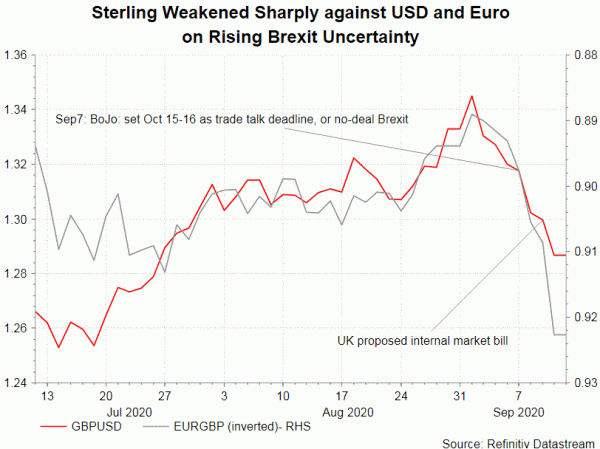
On the policy front, the Bank rate will stay at 0.1%. It is important to see whether if there are members dissenting the decision, say, favoring further easing. The size of asset purchases will also be maintained at 745B pound. At the Jackson Hole symposium, Governor Andrew Bailey noted that BOE’s balance sheet over the next decade “may have more of a counter-cyclical role and function than the evidence of the last decade alone would suggest”, and it is likely to be “more long-lived than had been anticipated” a decade ago. This probably suggests that asset purchases would become a conventional monetary policy tool. The central bank would actively manage the balance sheet during the entire economic cycle, rather than just during economic downturns. On the policy rate, Bailey stressed the “possibility of negative rates” and that the central bank was “not out of firepower by any means”. We expect BOE would attempt to increase the size of QE before formally adopting negative rate. Against the cloudy economic outlook and Brexit uncertainty, it is likely that the central bank will increase the size of the balance sheet in November.
